- Home
- Roald Dahl
Danny the Champion of the World Page 8
Danny the Champion of the World Read online
Page 8
From somewhere nearby I heard another fearful swish-crack! and I knew that poor Sidney had just got it as well.
But, oh, that fearful searing burning pain across my hand! Why didn't it go away? I glanced at Sidney. He was doing just the same as me, squeezing his hand between his legs and making the most awful face.
'Go and sit down, both of you!' Captain Lancaster ordered.
We stumbled back to our desks and sat down.
'Now get on with your work!' the dreaded voice said. 'And let us have no more cheating! No more insolence, either!'
The class bent their heads over their books like people in church saying their prayers.
I looked at my hand. There was a long ugly mark about half an inch wide running right across the palm just where the fingers joined the hand. It was raised up in the middle and the raised part was pure white, with red on both sides. I moved the fingers. They moved all right, but it hurt to move them. I looked at Sidney. He gave me a quick apologetic glance under his eyelids, then went back to his sums.
When I got home from school that afternoon, my father was in the workshop. 'I've bought the raisins,' he said. 'We will now put them in to soak. Fetch me a bowl of water, Danny.'
I went over to the caravan and got a bowl and half-filled it with water. I carried it to the workshop and put it on the bench.
'Open up the packets and tip them all in,' my father said. This was one of the really nice things about my father. He didn't take over and want to do everything himself. Whether it was a difficult job like adjusting a carburettor in a big engine, or whether it was simply tipping some raisins into a basin, he always let me go ahead and do it myself while he watched and stood ready to help. He was watching me now as I opened the first packet of raisins.
'Hey!' he cried, grabbing my left wrist. 'What's happened to your hand?'
'It's nothing,' I said, clenching the fist.
He made me open it up. The long scarlet mark lay across my palm like a burn.
'Who did it?' he shouted. 'Was it Captain Lancaster?'
'Yes, Dad, but it's nothing.'
'What happened?' He was gripping my wrist so hard it almost hurt. 'Tell me exactly what happened!'
I told him everything. He stood there holding my wrist, his face going whiter and whiter, and I could see the fury beginning to boil up dangerously inside him.
'I'll kill him! he softly whispered when I had finished. 'I swear I'll kill him!" His eyes were blazing, and all the colour had gone from his face. I had never seen him look like that before.
'Forget it, Dad.'
'I will not forget it!' he said. 'You did nothing wrong and he had absolutely no right to do this to you. So he called you a cheat, did he?'
I nodded.
He had taken his jacket from the peg on the wall and was putting it on.
'Where are you going?' I asked.
'I am going straight to Captain Lancaster's house and I'm going to beat the daylights out of him.'
'No!' I cried, catching hold of his arm. 'Don't do it, Dad, please! It won't do any good! Please don't do it!'
'I've got to,' he said.
'No!' I cried, tugging at his arm. 'It'll ruin everything! It'll only make it worse! Please forget it!'
He hesitated then. I held on to his arm. He was silent, and I could see the rush of anger slowly draining out of his face.
'It's revolting,' he said.
'I'll bet they did it to you when you were at school,' I said.
'Of course they did.'
'And I'll bet your dad didn't go rushing off to beat the daylights out of the teacher who did it.'
He looked at me but kept quiet.
'He didn't, did he, Dad?'
'No, Danny, he didn't,' he answered softly.
I let go of his arm and helped him off with his jacket and hung it back on the peg.
'I'm going to put the raisins in now,' I said. 'And don't forget that tomorrow I have a nasty cold and I won't be going to school.'
'Yes,' he said. 'That's right.'
'We've got two hundred raisins to fill,' I said.
Ah,' he said. 'So we have.'
'I hope we'll get them done in time,' I said.
'Does it still hurt?' he asked. 'That hand.'
'No,' I said. 'Not one bit.'
I think that satisfied him. And although I saw him glancing occasionally at my palm during the rest of the afternoon and evening, he never mentioned the subject again.
That night he didn't tell me a story. He sat on the edge of my bunk and we talked about what was going to happen the next day up in Hazell's Wood. He got me so steamed up and excited about it, I couldn't get to sleep. I think he must have got himself steamed up almost as much because after he had undressed and climbed into his own bunk, I heard him twisting and turning all over the place. He couldn't get to sleep either.
At about ten-thirty, he climbed out of his bunk and put the kettle on.
'What's the matter, Dad?'
'Nothing,' he said. 'Shall we have a midnight feast?'
'Yes, let's do that.'
He lit the lamp in the ceiling and opened a tin of tuna and made a delicious sandwich for each of us. Also hot chocolate for me, and tea for him. Then we started talking about the pheasants and about Hazell's Wood all over again.
It was pretty late before we got to sleep.
13
Friday
When my father woke me at six o'clock next morning, I knew at once that this was the day of days. It was the day I longed for and the day I dreaded. It was also the day of butterflies in the stomach except that they were worse than butterflies. They were snakes. I had snakes in the stomach the moment I opened my eyes on that Friday morning.
The first thing I did after I had got dressed was to hang the SORRY CLOSED notice on one of the pumps. We had a quick breakfast, then the two of us sat down together at the table in the caravan to prepare the raisins. They were plump and soft and swollen from being soaked in water, and when you nicked them with a razor-blade the skin sprang open and the jelly stuff inside squeezed out as easily as you could wish.
I slit the raisins while my father opened the capsules. He opened only one at a time and poured the white powder on to a piece of paper. Then he divided it into four tiny piles with the blade of a knife. Each pile was carefully scooped up and put into a single raisin. A needle and black cotton finished the job. The sewing up was the hardest part, and my father did most of that. It took about two minutes to do one raisin from start to finish. I enjoyed it. It was fun.
'Your mother was wonderful at sewing things,' my father said. 'She'd have had these raisins done in no time.'
I didn't say anything. I never knew quite what to say when he talked about my mother.
'Did you know she used to make all my clothes herself, Danny? Everything I wore.'
'Even socks and sweaters?' I asked.
'Yes,' he said. 'But those were knitted. And so quickly! When she was knitting, the needles flew so fast in her fingers you couldn't see them. They were just a blur. I would sit here in the evening watching her and she used to talk about the children she was going to have. "I shall have three children," she used to say. "A boy for you, a girl for me and one for good measure." '
There was a short silence after that. Then I said, 'When Mum was here, Dad, did you go out very often at night or was it only now and then?'
'You mean poaching?'
'Yes.'
'Often,' he said. 'At least twice a week.'
'Didn't she mind?'
'Mind? Of course she didn't mind. She came with me.'
'She didn't!'
'She certainly did. She came with me every single time until just before you were born. She had to stop then. She said she couldn't run fast enough.'
I thought about this extraordinary piece of news for a little while. Then I said, 'Was the only reason she went because she loved you, Dad, and because she wanted to be with you? Or did she go because she loved poaching?'
> 'Both,' my father said. 'She did it for both the reasons you mentioned.'
I was beginning to realize what an immense sorrow it must have been to him when she died.
'Weren't you afraid she might get shot up?' I asked.
'Yes, Danny, I was. But it was marvellous to have her along. She was a great sport, your mother.'
By midday we had prepared one hundred and thirty-six raisins. 'We're in good shape,' my father said. 'Let's break for lunch.'
He opened a tin of baked beans and heated them up in a saucepan over the paraffin burner. I cut two slices of brown bread and put them on plates. My father spooned the hot baked beans over the bread and we carried our plates outside and sat down with our legs dangling over the platform of the caravan.
Usually I love baked beans on bread, but today I couldn't eat a thing. 'What's the matter?' my father asked.
'I'm not hungry.'
'Don't worry,' he said. 'The same thing happened to me the first time I went out. I was about your age then, maybe a little older, and in those days we always had a hot tea in the kitchen at five o'clock. I can remember exactly what was on the table that evening. It was my favourite thing of all, toad-in-the-hole, and my mum could make toad-in-the-hole like nobody else in the world. She did it in an enormous pan with the Yorkshire pudding very brown and crisp on top and raised up in huge bubbly mountains. In between the mountains you could see the sausages half-buried in the batter. Fantastic it was. But on that day my stomach was so jumpy I couldn't eat one mouthful. I expect yours feels like that now.'
'Mine's full of snakes,' I said. 'They won't stop wiggling about.'
'Mine doesn't feel exactly normal either,' my father said. 'But then this isn't a normal operation, is it?'
'No, Dad, it's not.'
'Do you know what this is, Danny? This is the most colossal and extraordinary poaching job anyone has ever been on in the history of the world!'
'Don't go on about it, Dad. It only makes me more jumpy. What time do we leave here?'
'I've worked that out,' he said. 'We must enter the wood about fifteen minutes before sunset. If we arrive after sunset all the pheasants will have flown up to roost and it'll be too late.'
'When is sunset?' I asked.
'Right now it's about seven-thirty,' he said. 'So we must arrive at seven-fifteen exactly. It's an hour and a half's walk to the wood so we must leave here at a quarter to six.'
'Then we'd better finish those raisins,' I said. 'We've still got more than sixty to do.'
We finished the raisins with about two hours to spare. They lay in a pile on a white plate in the middle of the table. 'Don't they look marvellous?' my father said, rubbing his hands together hard. 'Those pheasants are going to absolutely love them.'
After that, we messed round in the workshop until half-past five. Then my father said, 'That's it! It's time to get ready! We leave in fifteen minutes!'
As we walked towards the caravan, a station-wagon pulled up to the pumps with a woman at the wheel and about eight children in the back all eating ice-creams.
'Oh, I know you're closed,' the woman called out through her window. 'But couldn't you please let me have a few gallons? I'm just about empty' She was a good-looking woman with dark hair.
'Give it to her,' my father said. 'But be quick.'
I fetched the key from the office and unlocked one of the pumps. I filled up her tank and took the money and gave her the change. 'You don't usually close as early as this,' she said.
'We have to go out,' I told her, hopping from one foot to the other. 'I have to go somewhere with my father.'
'You look jumpy as a jack-rabbit,' she said. 'Is it the dentist?'
'No, ma'am,' I said. 'It's not the dentist. But please excuse me. I have to go now.'
14
Into the Wood
My father came out of the caravan wearing the old navy-blue sweater and the brown cloth-cap with the peak pulled down low over his eyes.
'What's under there, Dad?' I asked, seeing the bulge at his waistline.
He pulled up his sweater and showed me two thin but very large white cotton sacks. They were bound neat and tidy round his belly. 'To carry the stuff,' he said darkly.
'Ah-ha.'
'Go and put on your sweater,' he said. 'It's brown, isn't it?'
'Yes,' I said.
'That'll do. But take off those white sneakers and wear your black shoes instead.'
I went into the caravan and changed my shoes and put on my sweater. When I came out again, my father was standing by the pumps squinting anxiously up at the sun which was now only the width of a man's hand above the line of trees along the crest of the ridge on the far side of the valley.
'I'm ready, Dad.'
'Good boy. Off we go!'
'Have you got the raisins?' I asked.
'In here,' he said, tapping his trouser pocket where yet another bulge was showing. 'I've put them all in one bag.'
It was a calm sunny evening with little wisps of brilliant white cloud hanging motionless in the sky, and the valley was cool and very quiet as the two of us began walking together along the road that ran between the hills towards Wendover. The iron thing underneath my father's foot made a noise like a hammer striking a nail each time it hit the road.
'This is it, Danny. We're on our way now,' he said. 'By golly, I wish my old dad were coming with us on this one. He'd have given his right teeth to be here at this moment.'
'Mum, too,' I said.
'Ah, yes,' he said, giving a little sigh. 'Your mother would have loved this one.'
Then he said, 'Your mother was a great one for walking, Danny. And she would always bring something home with her to brighten up the caravan. In summer it was wild flowers or grasses. When the grass was in seed she could make it look absolutely beautiful in a jug of water, especially with some stalks of wheat or barley in between. In the autumn she would pick branches of leaves, and in the winter it was berries or old man's beard.'
We kept going. Then he said, 'How do you feel, Danny?'
'Terrific,' I said. And I meant it. For although the snakes were still wiggling in my stomach, I wouldn't have swopped places with the King of Arabia at that moment.
'Do you think they might have dug any more of those pits for us to fall into?' I asked.
'Don't you go worrying about pits, Danny,' my father said, 'I'll be on the lookout for them this time. We shall go very carefully and very slowly once we're in the wood.'
'How dark will it be in there when we arrive?'
'Not too dark,' he said. 'Quite light in fact.'
'Then how do we stop the keepers from seeing us?'
'Ah,' he said. 'That's the fun of the whole thing. That's what it's all about. It's hide-and-seek. It's the greatest game of hide-and-seek in the world.'
'You mean because they've got guns?'
'Well,' he said, 'that does add a bit of a flavour to it, yes.'
We didn't talk much after that. But as we got closer and closer to the wood, I could see my father becoming more and more twitchy as the excitement began to build up in him. He would get hold of some awful old tune and instead of using the words, he would go 'Tum-tiddely-um-tum-tum-tum-tum' over and over again. Then he would get hold of another tune and go 'Pom-piddely-om-pom-pom-pom-pom, pom-piddely-om, pom-piddely-om'. As he sang, he tried to keep time with the tap-tap of his iron foot on the roadway.
When he got tired of that, he said to me, 'I'll tell you something interesting about pheasants, Danny. The law says they're wild birds, so they only belong to you when they're on your own land, did you know that?'
'I didn't know that, Dad.'
'So if one of Mr Hazell's pheasants flew over and perched on our filling-station', he said, 'it would belong to us. No one else would be allowed to touch it.'
'You mean even if Mr Hazell had bought it himself as a chick?' I said. 'Even if he had bought it and reared it in his own wood?'
'Absolutely,' my father said. 'Once it flies off his own l
and, he's lost it. Unless, of course, it flies back again. It's the same with fish. Once a trout or a salmon has swum out of your stretch of the river into somebody else's, you can't very well say, "Hey, that's mine. I want it back," can you?'
'Of course not,' I said. 'But I didn't know it was like that with pheasants.'
'It's the same with all game,' my father said. 'Hare, deer, partridge, grouse. You name it.'
We had been walking steadily for about an hour and a quarter and we were coming to the gap in the hedge where the cart-track led up the hill to the big wood where the pheasants lived. We crossed over the road and went through the gap.
We walked on up the cart-track and when we reached the crest of the hill we could see the wood ahead of us, huge and dark with the sun going down behind the trees and little sparks of gold shining through.
'No talking, Danny, once we're inside,' my father said. 'Keep very close to me, and try not to go snapping any branches.'
Five minutes later we were there. The wood skirted the edge of the track on the right-hand side with only the hedge between it and us. 'Come on,' my father said. 'In we go.' He slipped through the hedge on all fours and I followed.
It was cool and murky inside the wood. No sunlight came in at all. My father took me by the hand, and together we started walking forward between the trees. I was very grateful to him for holding my hand. I had wanted to take hold of his the moment we entered the wood, but I thought he might disapprove.
My father was very tense. He was picking his feet up high and putting them down gently on the brown leaves. He kept his head moving all the time, the eyes sweeping slowly from side to side, searching for danger. I tried doing the same, but soon I began to see a keeper behind every tree, so I gave it up.
We went on like this for maybe four or five minutes, going slowly deeper and deeper into the wood.
Then a large patch of sky appeared ahead of us in the roof of the forest, and I knew that this must be the clearing. My father had told me that the clearing was the place where the young birds were introduced into the wood in early July, where they were fed and watered and guarded by the keepers, and where many of them stayed from force of habit until the shooting began. 'There's always plenty of pheasants in the clearing,' my father had said.

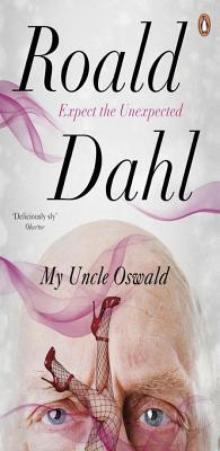 My Uncle Oswald
My Uncle Oswald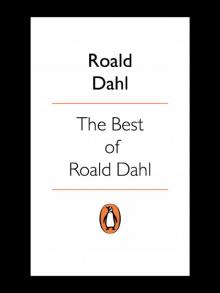 The Best of Roald Dahl
The Best of Roald Dahl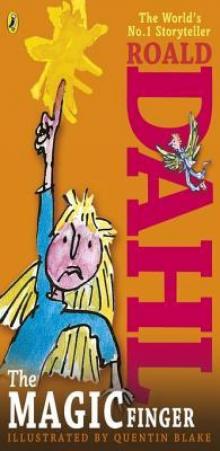 The Magic Finger
The Magic Finger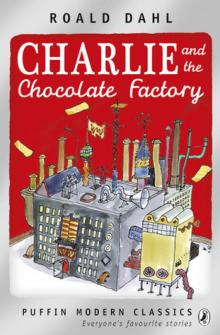 Charlie and the Chocolate Factory
Charlie and the Chocolate Factory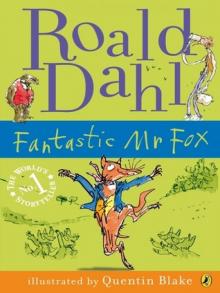 Fantastic Mr Fox
Fantastic Mr Fox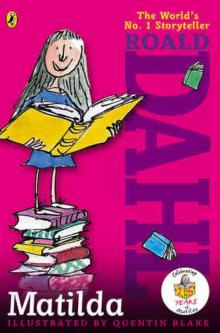 Matilda
Matilda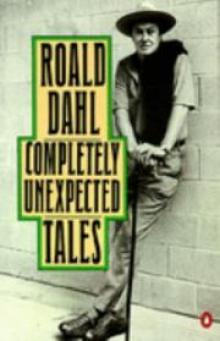 Completely Unexpected Tales: Tales of the Unexpected. More Tales of the Unexpected
Completely Unexpected Tales: Tales of the Unexpected. More Tales of the Unexpected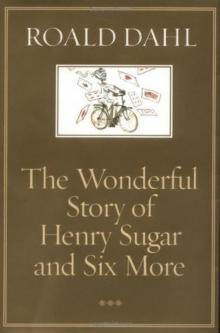 The Wonderful Story of Henry Sugar and Six More
The Wonderful Story of Henry Sugar and Six More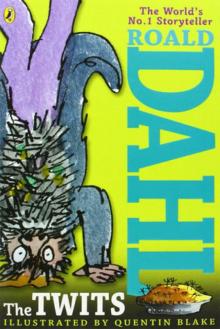 The Twits
The Twits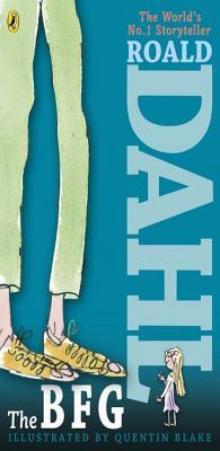 The BFG
The BFG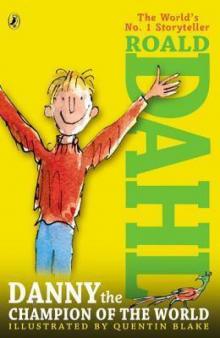 Danny the Champion of the World
Danny the Champion of the World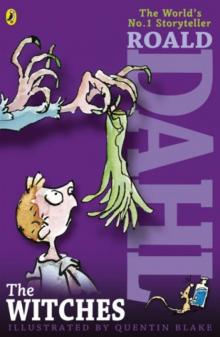 The Witches
The Witches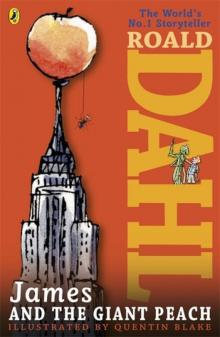 James and the Giant Peach
James and the Giant Peach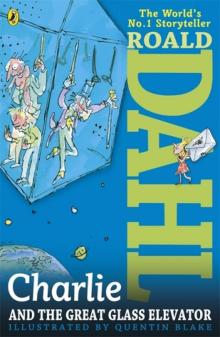 Charlie and the Great Glass Elevator
Charlie and the Great Glass Elevator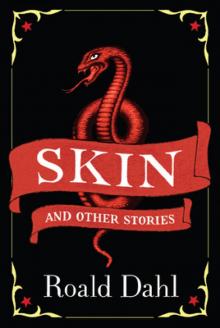 Skin and Other Stories
Skin and Other Stories Kiss Kiss
Kiss Kiss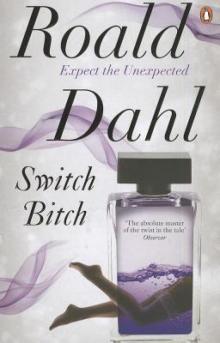 Switch Bitch
Switch Bitch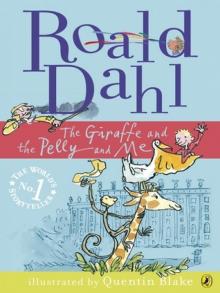 The Giraffe and the Pelly and Me
The Giraffe and the Pelly and Me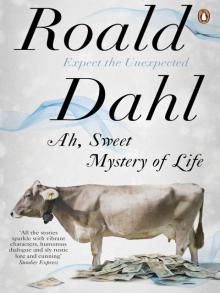 Ah, Sweet Mystery of Life
Ah, Sweet Mystery of Life Fear
Fear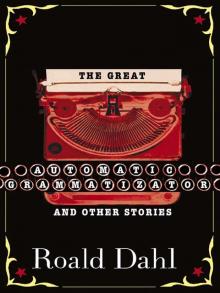 The Great Automatic Grammatizator and Other Stories
The Great Automatic Grammatizator and Other Stories Someone Like You
Someone Like You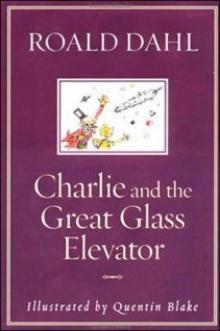 Charlie and the Great Glass Elevator c-2
Charlie and the Great Glass Elevator c-2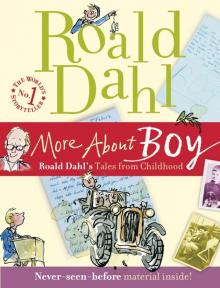 More About Boy
More About Boy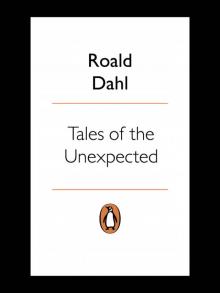 Tales of the Unexpected
Tales of the Unexpected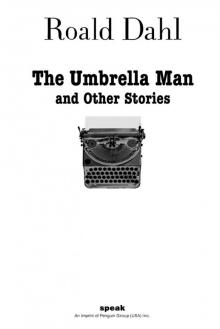 The Umbrella Man and Other Stories
The Umbrella Man and Other Stories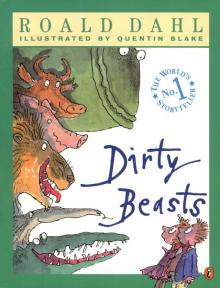 Dirty Beasts
Dirty Beasts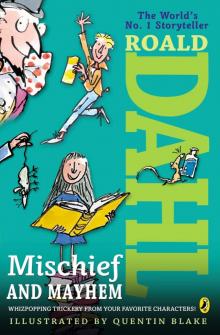 Roald Dahl's Mischief and Mayhem
Roald Dahl's Mischief and Mayhem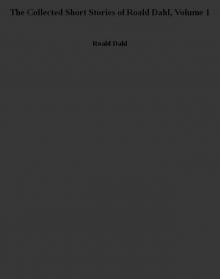 The Collected Short Stories of Roald Dahl, Volume 1
The Collected Short Stories of Roald Dahl, Volume 1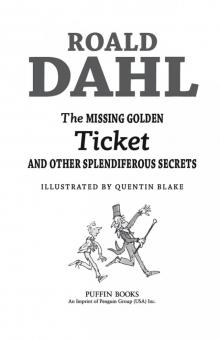 The Missing Golden Ticket and Other Splendiferous Secrets
The Missing Golden Ticket and Other Splendiferous Secrets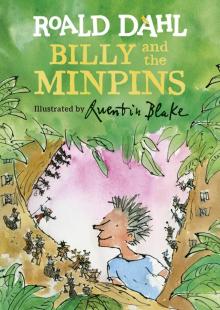 Billy and the Minpins
Billy and the Minpins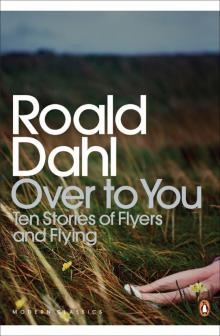 Over to You
Over to You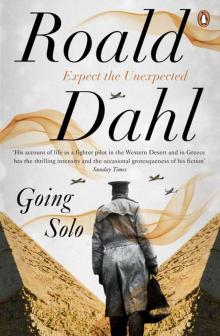 Going Solo
Going Solo Deception
Deception War
War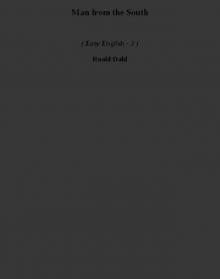 Man from the South ee-3
Man from the South ee-3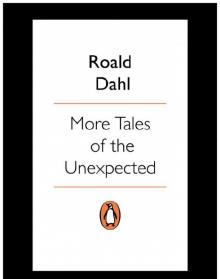 More Tales of the Unexpected
More Tales of the Unexpected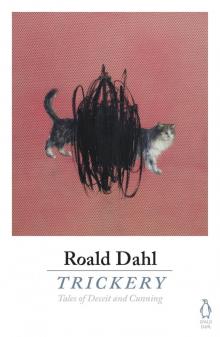 Trickery
Trickery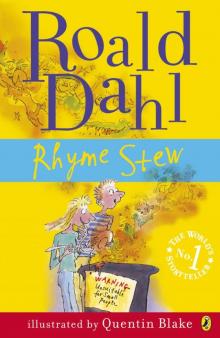 Rhyme Stew
Rhyme Stew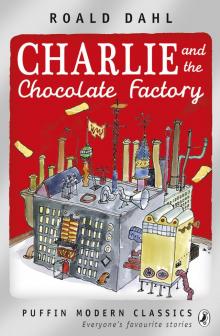 Charlie and the Chocolate Factory (Puffin Modern Classics relaunch)
Charlie and the Chocolate Factory (Puffin Modern Classics relaunch)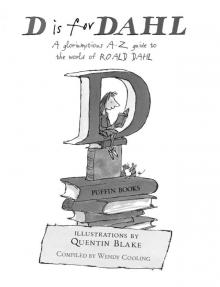 D is for Dahl
D is for Dahl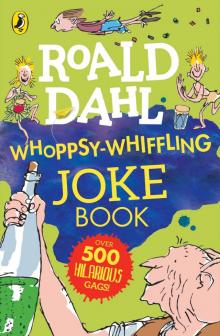 Roald Dahl Whoppsy-Whiffling Joke Book
Roald Dahl Whoppsy-Whiffling Joke Book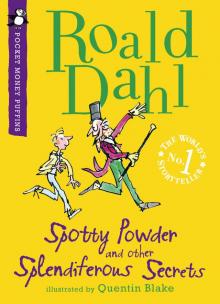 Spotty Powder and other Splendiferous Secrets
Spotty Powder and other Splendiferous Secrets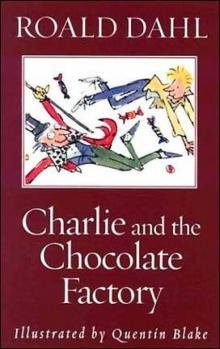 Charlie and the Chocolate Factory c-1
Charlie and the Chocolate Factory c-1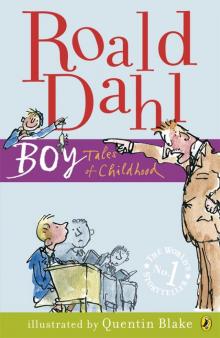 Boy
Boy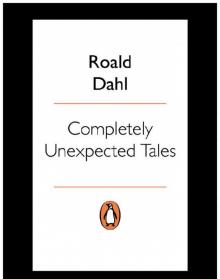 Completely Unexpected Tales
Completely Unexpected Tales Madness
Madness Innocence
Innocence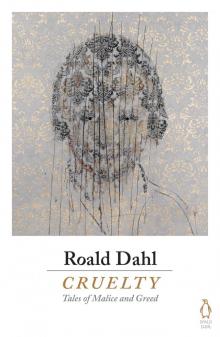 Cruelty
Cruelty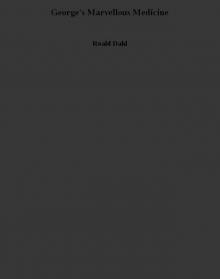 George's Marvellous Medicine
George's Marvellous Medicine